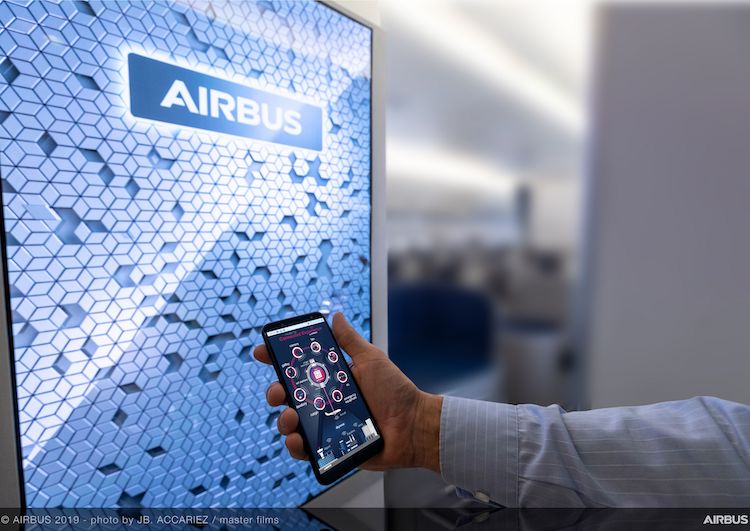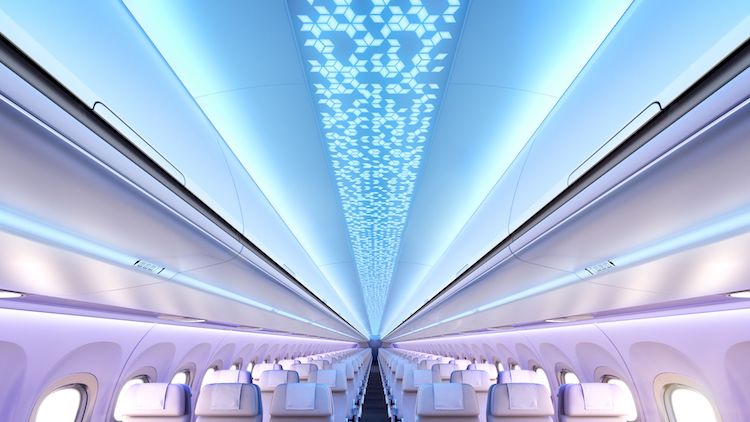Airbus partners with Chinese aviation industry on final assembly
Airbus has partnered with a Chinese aviation company on the final stages of its aircraft assembly.
The new deal brings the value of the European aerospace giant’s co-operation agreements in China to approximately $1 billion.
Airbus says the measure reaffirms its commitment to its long-term strategic partnership with China’s aviation industry. The new agreement is with Aviation Industry Corporation of China (AVIC), and is designed to deepen industrial cooperation on Airbus single-aisle production.
AVIC is a Chinese state-owned aerospace and defence conglomerate. It has over 100 subsidiaries, 27 listed companies and 500,000 employees across the globe.
Airbus is one of the two largest aerospace companies in the world, with more than 130,000 employees and $64 billion revenue a year. The other is Boeing. Each company is estimated to have more than 40 per cent of the market.
The agreement between AVIC and Airbus was signed at the Great Hall of the People in Beijing, witnessed by Chinese Premier Li Keqiang and visiting German Chancellor Angela Merkel.
The cooperation with AVIC will enhance Airbus single-aisle aircraft (A319/A320) fuselage equipping in Tianjin, China.
The first delivery of a China-equipped Airbus single-aisle aircraft (A319/A320) fuselage is scheduled in Q2 of 2021.
The signature is a milestone in Airbus and China’s win-win partnership, which stands to benefit the aviation industry of both parties in terms of scale and quality.
Industrial cooperation between Airbus and Chinese aviation industry on commercial aircraft dates back to 1985 at the signing of the first sub-contracting agreement with Xi’an Aircraft Company (currently AVIC aircraft on manufacturing and assembling access doors for Airbus A300/A310 wide-body aircraft.
The total value of industrial cooperation between Airbus and Chinese aviation industry reached $900 million in 2018, says Airbus.

Connected cabin technologies
Meanwhile, Airbus has started in-flight trials of connected cabin technologies on board an A350-900 Flight Lab aircraft,
The internet of things networked cabin is to be shortly revealed to customers.
Airbus claims it is the first aircraft manufacturer to undertake such flight-testing of actual connected cabin innovations.
The platform, known as the Airspace Connected Experience, was unveiled at APEX Expo last year.
Airbus says it will usher in “a new personalised experience for passengers and provide opportunities for improving airlines’ ancillary revenues and operational efficiencies”.
The company says connected cabin ecosystem will “enable significant value-adding services” for passengers, airlines and crews. Possible examples include:
Passengers will receive a more personalised travel experience specifically targeted to the individual needs and preferences, based on the available data.
In particular this covers pre- and remote ordering of preferred meals, booking of private bin space, setting of individual seat positions as well as a tailor-made inflight IFE offer.
Airlines will be able to generate additional ancillary revenues through personalised retail and advertisement as well as new services, all enabled by the IoT approach.
Furthermore, airlines will be able to improve their operational efficiency applying predictive maintenance, avoiding waste and making crew services more efficient. Other opportunities can easily be created and applied via apps.
Crews will find a better working environment and more efficient tools, digitally enabled by real-time data from the IoT platform throughout the cabin. A mobile smart device will allow crews to monitor and operate all components.

‘Crystal Cabin’ award
Additionally, Airbus and its partners have won a prestigious award for the design of aircraft cabins.
Airbus, together with gategroup, Recaro Aircraft Seating and Stelia Aerospace, recently won the 2019 Crystal Cabin Award in the category “Best Customer Journey” with the Airspace Connected Experience.
Unveiled as a concept during the APEX Expo last year, it will usher in a new personalised experience for passengers and provide opportunities for improving airlines’ ancillary revenues and operational efficiencies.
The platform will link in real-time interconnected core cabin components, including the galleys, meal trolleys, seats, overhead bins and other cabin elements.
It will allow passengers to receive a much more personalised travel experience. Airbus is working with additional suppliers to expand the services linked to the Connected Experience.
Soeren Scholz, Airbus’ SVP cabin and cargo programme said: “This seamless inter-connectivity within the cabin will be of tremendous benefit to passengers who will be able to enjoy individually tailored, personalised and high-quality inflight service.”
Main picture: Airbus final assembly line in Tianjin, China

